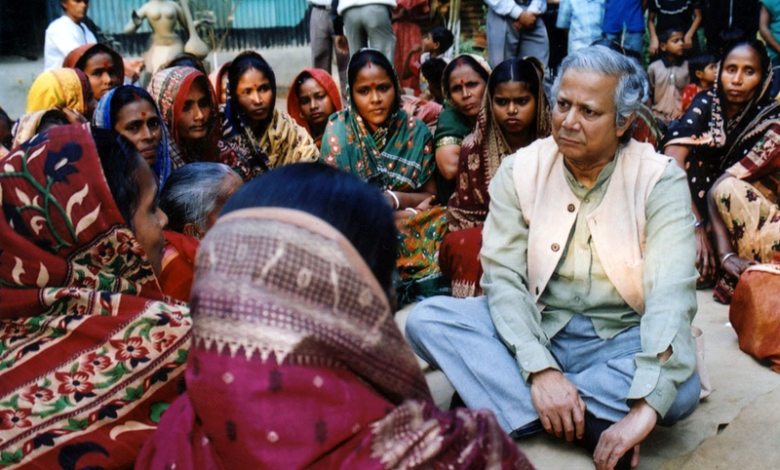Muhammad Yunus: A Short History Of The ‘Banker To The Poor’

News Mania Desk/Agnibeena Ghosh/9th August 2024
Muhammad Yunus, the acclaimed Nobel laureate renowned as the “banker to the poor,” has been entrusted with leading Bangladesh’s interim government. This appointment follows a period of intense anti-government demonstrations that led to the ousting of Prime Minister Sheikh Hasina and the dissolution of the parliament. Yunus, a prominent social entrepreneur and banker, is stepping into this role at a critical juncture, aiming to restore stability and order to the nation.
At 84 years old, Yunus is celebrated globally for his groundbreaking work in microfinance, which earned him the Nobel Peace Prize in 2006. His innovative approach to alleviating poverty through microloans has transformed countless lives in Bangladesh and has been adopted internationally. His nomination to lead the interim government comes amid political upheaval and widespread public discontent.
Yunus’s career has been marked by his commitment to social entrepreneurship. Born in 1940 in Chittagong, Bangladesh, he pursued higher education in economics at Dhaka University and Vanderbilt University in the United States. Returning to Bangladesh in 1972 after the country gained independence, Yunus initially taught at Chittagong University. However, the devastating famine of 1974 shifted his focus from academic theories to practical solutions for the impoverished.
Faced with the harsh realities of poverty, Yunus began extending small loans from his own resources to support the poorest individuals in his community. This effort led to the establishment of the Grameen Bank in 1983, a pioneering institution in microfinance. The Grameen Bank’s model of lending small amounts without requiring collateral became a global success, with the bank issuing approximately $6 billion in loans over the years, focusing on empowering women and supporting micro-enterprises.
Despite his accolades and contributions, Yunus has faced significant challenges, particularly in relation to former Prime Minister Sheikh Hasina. Their relationship has been fraught with tension, especially after Yunus proposed forming a new political party in 2007, a move that Hasina opposed. In 2011, Yunus was removed from his position at Grameen Bank by the government-controlled central bank, citing retirement age restrictions. He has since been involved in legal disputes, which he and his supporters argue are politically motivated.
In January, Yunus was sentenced to six months in prison for labor law violations, a conviction that was overturned just before his appointment as interim leader. Despite his legal battles, Yunus remains a formidable figure in Bangladesh’s political and social landscape.
Now, as he assumes the role of interim leader, Yunus has emphasized the need to restore law and order and heal the divisions within Bangladeshi society. His immediate priorities include addressing the severe mistrust between the populace and state institutions, declaring free and fair elections, and tackling the aftermath of recent violent protests that resulted in significant casualties.
Experts believe Yunus faces a complex task ahead, balancing the demands of the student-led movement that brought about these changes with the need to implement comprehensive reforms. The interim government’s ability to address human rights violations and foster economic recovery will be closely scrutinized. Yunus’s background in economics could be instrumental in driving necessary reforms, but he will likely encounter resistance from those loyal to the previous regime.






